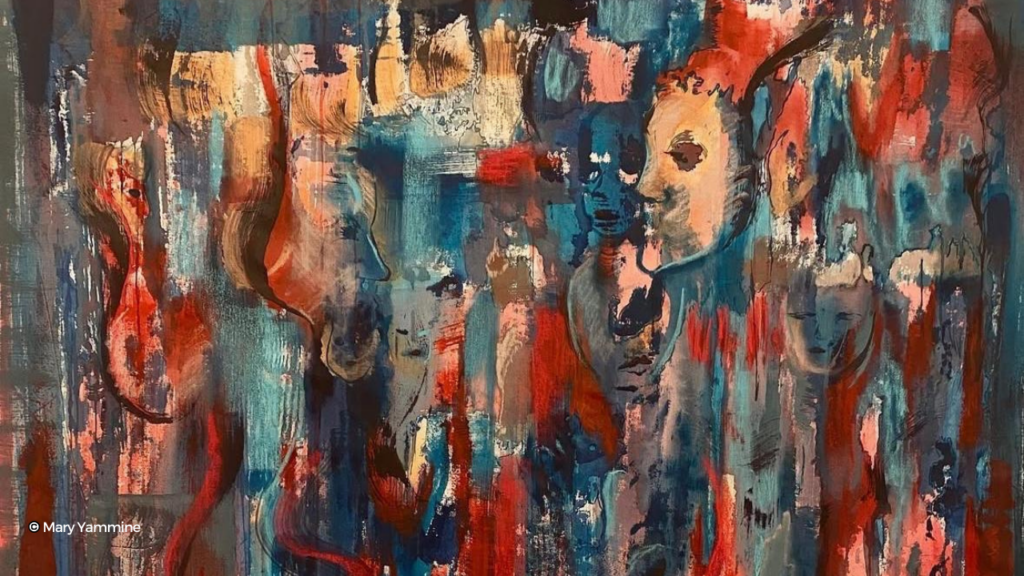Peacebuilding & Social Cohesion

The problem
Hatred increasingly shapes how we relate to those perceived as different from us. This often stems from othering—a process where individuals or groups are seen as inherently inferior or threatening. Rooted in fear and sustained by stereotypes, othering distorts perceptions and deepens divisions between communities.
Leaders frequently exploit these divisions by manipulating identities, promoting competition, and framing crises as battles over scarce resources. These tactics stir fear and mistrust, making exclusion and discrimination seem acceptable—even necessary.
As a result, dehumanizing narratives spread, empathy erodes, and polarization intensifies. Othering isolates communities and undermines equity, making it harder to recognize shared humanity or work together toward common goals.
We are advocates for positive peace, as defined by the UN, which refers to the complex process of preventing the "outbreak, continuation, escalation, and recurrence of violent conflict, addressing its root causes, assisting conflict parties in ending hostilities, promoting national reconciliation, and advancing recovery, reconstruction, and development".
Our solution: Building a comprehensive peacebuilding framework that spans prevention, intervention and recovery
At FDCD, we focus on relational transformation, which is a long-term process of changing perceptions, beliefs, and behaviors. This approach moves beyond mere interpersonal relationships to encompass the dynamics between institutions and communities, reinforcing the interconnectedness of all stakeholders in peacebuilding.
At the community level, we emphasize dialogue as a transformative practice. Our aim is to foster mutual understanding and respect, building mechanisms for conflict early warning; empowering people to identify, understand and address conflicts proactively. At the same time, we prioritize post-conflict stabilization, focusing on healing, dealing with the past, reconciliation and social cohesion.
At the structural level, we harness innovation and interdisciplinary approaches to bridge the gap between leadership and grassroots communities, creating an ecosystem where local voices actively shape governance. This fosters a more inclusive and responsive system.

What do we mean by nurturing safe spaces?
The creation of safe spaces for dialogue is central to our peacebuilding work as we fiercely believe that communication affects decision making, perceptions and behaviors. We are inspired by the work of Stephanie Pukallus (Communicative Peacebuilding, 2021) on discursive civility where individuals are encouraged to actively and openly listen and engage respectfully and thoughtfully – even (and especially) when discussing sensitive or contentious issues – so that everyone feels secure enough to express their views and emotions without fear of judgment or retaliation. The safe space that incites this kind of civility is governed by the following principles that we try to nurture in all our activities:
We practice active listening, encouraging people to be open to understand differing viewpoints and to be motivated to reconsider their own views based on the possibility and potentiality that others might have a valid point.
We encourage parties to share their feelings (even the negative ones: such as anger) while promoting self-control to avoid hate. Self-regulation is necessary as it fosters hope, an important political feeling for building futures.
We foster an open and respectful space where participants can explore and express the nuances of their beliefs, encouraging thoughtful reflection on the reasons behind their viewpoints and the ways in which they arrive at their conclusions.
Reconciliation is not to quickly forgive and forget, as if it never happened or we somehow are gifted with a form of amnesia. Reconciliation requires that we remember and change, but with honesty about our experience and curiosity about the humanness of the other whom we fear.
John Paul Lederach
Social cohesion
Social cohesion is about building trust across all divides— both vertically, between individuals and authority figures, and horizontally, among communities themselves. We believe that social cohesion is an emotional and intellectual process, here is how.
It starts with creating a sense of community, which fosters emotional bonds across divides that helps shatter stereotypes and prejudgment. The positive energy created by positive contact allows individuals to have more empathy and solidarity and open grounds for lasting friendships and collaboration.
However, emotional bonds alone are not enough to build communities and create fair systems. They must be accompanied by action driven by what Procentese & Gatti (2019b) term responsible togetherness.
Responsible togetherness highlights that feelings of belonging and love should be paired with a sense of individual responsibility toward oneself and the community. This responsibility encourages action to respect others’ needs, rights, uniqueness, and freedoms, fostering a shared commitment to each other’s well-being.
Social cohesion is often misunderstood as homogeneity or as avoiding accountability and suppressing dissent in the name of harmony and preserving good relationships. In reality, true cohesion begins with building bonds that break down dehumanization, foster trust both within and between groups, and create a sense of belonging. With this leading to open, constructive disagreements that contribute to growth and actual structural changes instead of violence.
In sum, we view social cohesion as a process that unfolds on both emotional and intellectual levels:
On an emotional level, we foster positive contacts grounded on authenticity, built on plurality, freedom of expression, respect for human dignity and a shared commitment to justice.
On an intellectual level, we encourage individuals to actively engage in their communities, rethink their roles, rights, and responsibilities as citizens, and collaboratively redesign new social contracts, fairer systems and better institutions that reflect the collective values of the community.
We include women mediators and stakeholders in all peace processes because their voices lead to more inclusive, lasting solutions. Despite often bearing the brunt of conflict, women are frequently excluded — yet peace deals are 35% more likely to last 15 years when they’re meaningfully involved, as per UN women.
Conventional tracks
We facilitate mediation meetings among high-level state actors while also including marginalized and hard-to-reach groups and other stakeholders.
Achieving peace agreements is a lengthy process, so we prioritize pre-negotiation meetings to address internal conflicts before moving on to negotiations between conflicting parties. Some issues may require additional discussions to resolve independently.
Negotiations can be challenging and demand a willingness from both sides to take risks and trust one another. This delicate process requires a skilled mediator with a deep understanding of identity, power dynamics, trauma, history, and effective communication skills, such as empathy and conflict management. A mediator’s personality and ability to create a safe space and trusting environment are essential for meaningful engagement. That’s why we take great care in selecting the right mediators to collaborate with.
What do we do?
Copyright © FDCD, all rights reserved.







Stay Connected